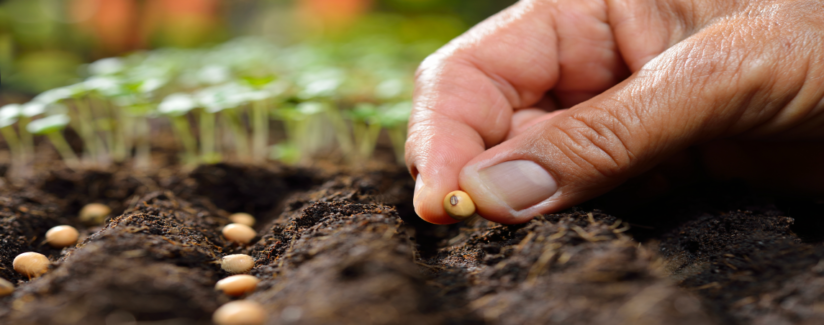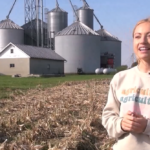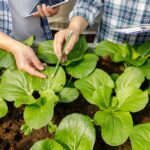
Sustainability: Are GMOs Good or Bad?
06/03/2020
Mention GMOs – genetically modified organisms – and you’ll likely hear a wide range of opinions. Some believe these plants and animals have great benefits to produce food and protect the environment. Others believe they hold potential risks and should be avoided. GMOs have been in use for many years. Despite the broad scientific consensus that they are safe to eat and safe for the environment, their use has generated plenty of public dialogue, questions and curiosity about the technology.
Genetically engineered plants or animals, often called GMOs, were developed through biotechnology and often carry genes from a bacteria or virus. Biotechnology has been used to help crops better withstand drought, be resistant to insects or be better suited to control weeds. Genetic modifications can help animals to better utilize the feed they eat. Find out What foods have been genetically modified?
GMOs and Sustainability
In this series, we are looking at sustainability and the inherent tradeoffs and benefits of specific practices in farming and food production.
To learn more about biotechnology, we reached out to Dr. Pamela Ronald, a distinguished professor in the Department of Plant Pathology at the University of California-Davis. She has gained worldwide recognition for her work in genetically engineering rice to better withstand plant diseases and flooding.
“Rice is an important staple food crop for more than half the world’s people, so it’s really important to work with,” Dr. Ronald said. “Even a small change that you can make in the ability of the plant to survive stress or resist disease can have an impact on millions of people.”
Are GMOs good or bad?
That depends.
First, Dr. Ronald said the biotech foods are safe to grow and to eat. “There’s no question about that. They’ve been planted for 25 years now,” she said. “They have reduced the use of chemical insecticide, and I think that’s really important for people to know.”
Find out more about GMOs and human health.
Dr. Ronald also explained that biotechnology is just one of the tools farmers can use to help produce food. When farmers have access to a variety of tools or techniques, they can choose the ones that work best for each crop, for each location and for each situation.
“All farmers rely on seeds to grow their crops, and farmers are looking for seeds that help make agriculture more productive and sustainable,” Dr. Ronald said. “They want to use less land, use water more efficiently, use soil more efficiently. They want to reduce the use of harmful inputs. Every type of contribution can be really important for farmers.”
Dr. Ronald’s husband is an organic farmer. She noted that every type of farming has tradeoffs. As an example, in order to grow a crop, the soil must be disturbed and native plants are removed.
The key is weighing the impacts, tradeoffs and benefits, and then making an informed choice. “We farm because we have to eat,” she noted. “It’s a huge tradeoff. How do we farm more sustainably and try to minimize our impact on the environment?”
Some farmers have found that GMOs can contribute to making farming more sustainable. Dr. Ronald gave an example of farmers in Bangladesh growing eggplant. Previously, farmers needed to spray insecticide several times a week during the growing season to save the crop from destructive insects. In recent years, they have planted a genetically modified eggplant seed that contains a gene from a bacteria that prevents the insects from reproducing. As a result, the farmers use much less insecticide spray, the crops have yielded more eggplant from the same amount of land and families have a better income. You can learn more about it in Dr. Ronald’s Ted Talk.
Because there is a lot of misunderstanding and incorrect information about GMOs, Dr. Ronald encourages those with questions to explore reputable sources of information, such as the National Academy of Sciences. or the USDA.
“I think it’s important to realize that all farmers rely on seeds that have been genetically altered in some manner. The method is not important. What matters is what kind of trait that’s being imparted to the plant,” she said.
“It’s always good to just think about the challenges faced by farmers. Floods come through, which is predicted to occur more frequently with climate change. Then some farmers can’t grow their crops because there’s not enough water. Some farmers’ crops are devastated by insect pests. So anytime you can develop crops that are resistant to insects, it can have a massive benefit to farmers.”
Weighing the Benefits and Tradeoffs
GMOs and biotechnology have both benefits and tradeoffs. The benefits are that GMOs can help plants or animals grow more efficiently, which means more food produced using fewer natural resources. GMOs can reduce the use of insecticides and harmful herbicides.
On the other hand, GMO crops often involve the use of the herbicide, glyphosate, which is concerning to some consumers. Some perceive that food produced through GMOs is less natural, because of the modification process and introduction of genetic material not native to the original organism. Some people have concerns that genes from the modified plants or animals could transfer to other organisms. There are also concerns that farmers’ reliance on certain types of GMOs could contribute to biodiversity loss or cause over-production.
In the United States, some people have reservations about biotechnology that is owned by corporations, and they worry this could put small companies or farmers at a disadvantage. In other countries, such as in the case of Bangladesh’s eggplant, the seeds were generated by non-profits and distributed free to farmers.
Biotechnology should not be viewed as a one-size-fits all solution to farming challenges. It must be managed in conjunction with other techniques.
“It’s not that once you choose biotech over another approach, that’s it. It really depends on the particular farming system and what’s being used at the time,” Dr. Ronald said.
Science is a continuum with each researcher’s work building on others. Biotechnology can be part of the solution to make agriculture more sustainable around the world.
GMO involves the genetic modification of plants and animals to improve crops and food production. With any practice, there are tradeoffs and benefits. Many experts concur that GMO technology offers tools and solutions that farmers can use to make food production more sustainable.


























